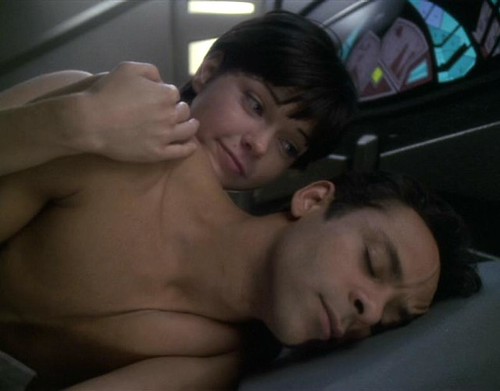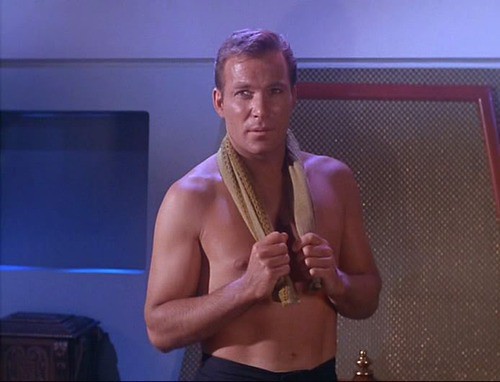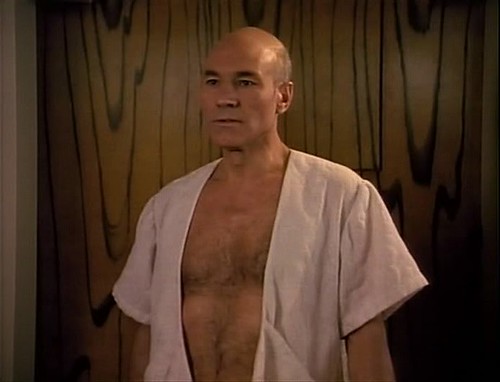You continue to be obsessed with numbers -- representation, quotas, percentages -- and are entirely indifferent to the nature of that representation, the implications of gender roles, the dynamics of the relationships between men and women in a working/personal relationship. You are, in other words, advocating the PRACTICE of affirmative action without having any concept whatsoever what affirmative action is supposed to accomplish.
I think I have a concept of what I'm aiming for even if I may not be able to articulate it very well.
I do too. You're aiming for quotas: any particular scene should have X number of women for every Y number of men. You're willing to accept switching male extras for female extras in order to accomplish this goal; you're willing to accept female characters having fewer or less important speaking parts if it means they at least got into the film at all. You do so with the assumption that just by the law of averages, SOME of those extras will somehow be developed into richer characters or have their roles expanded as a matter of happy creative accident.
In doing so you have completely ignored -- EVERY TIME -- the expanded roles of Marcus and Uhura. You have completely ignored -- EVERY TIME -- the fact that a negative portrayal of women is less preferable than no portrayal at all. You have completely ignored -- EVERY TIME -- the simple fact that a male-dominated creative process is NOT more likely to lead to positive creative twists, but rather negative ones preferentially cater to the
overwhelmingly male audience of science fiction.
You are, in other words, spectacularly missing the point.
I'm advocating greater numbers largely because the more women you feature, the more likely you are to feature them in diverse roles.
And this is the last time I'm going to point this out to you: as far as science fiction is concerned, those diverse roles are
significantly less likely to be positive ones. You glossed over this with my earlier example (I have no idea why) but it's the same issue as someone realizing "There aren't a lot of good black characters in movies" and then addressing the issue by hiring an all-black cast for a movie about gangsters and prostitutes.
And is, incidentally, the same problem with affirmative action. Quotas are counter-productive if you give no consideration to the people you fill them with; OTOH, once you start considering people on their merits, the quotas become irrelevant.
Going back to Ilia, I agree that Deltan pheromones are a bit of a Roddenberry wet dream (but lets not forget that Gaila had them too). But I rather like the concept of Deltans as creatures who are sensitive to pheromones, making them empathic (rather than bog-standard psychic empathy) and who can control emotional states by modifying their own pheromone output. It looks like fertile ground compared to the watered down betazoids.
And is positive proof that male-to-female quotas won't address the issue at all. Because when it comes to characterization, quality is actually more important than quantity. Nowhere is this more evident than in some of the more recent Ben Bova novels, which do a lot of blatant and awkward pandering to feminist memes while at the same time portraying the majority of its female characters as being basically disposable sex objects with wooden and forgettable personalities (or Tomboy crpyto-Lesbians, in the case of Pancho Lane).
In this case, the producers of TMP chose to create a novel female character in the personage of Ilia. They were NOT looking to create a female character for the sake of representing females in a positive light or examining the nature of gender roles in speculative alien societies. They were seeking to flesh out an interesting character and one of the attributes of that character was that of being female.
IOW, we don't need to add more women to the science fiction in the hope that some of them will be better characters. We need to add better characters to science fiction, knowing that some of them will be female.







 It certainly isn't the case in NuBSG or Defiance. Please look at Defiance as a better example of what gender roles in Trek could be. Yes, it's a series so just pick two episodes and see what you've got to work with.
It certainly isn't the case in NuBSG or Defiance. Please look at Defiance as a better example of what gender roles in Trek could be. Yes, it's a series so just pick two episodes and see what you've got to work with. 